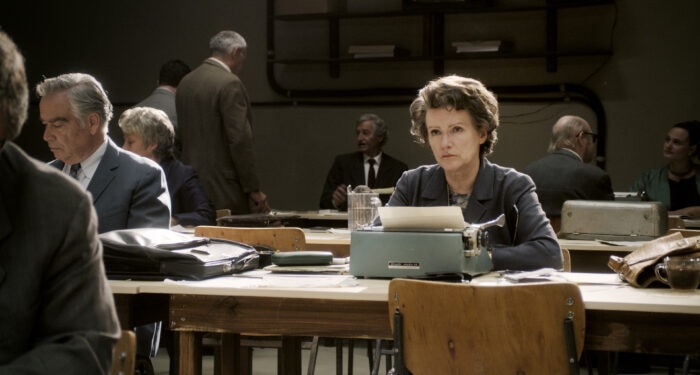How to portray a person whose job it is to think – this is the challenge von Trotta tackles in her biopic of the philosopher Hannah Arendt. Slipping inside Arendt’s skin is the amazing Barbara Sukowa, who also played the leading role in the director’s films about Rosa Luxemburg and Hildegard von Bingen.
The film begins when the Israeli secret service arrests wanted Nazi criminal Adolf Eichmann in Argentina in 1960. Having migrated to the United States, the German Jew Arendt offers to write about Eichmann’s trial for The New Yorker. In Eichmann, Arendt sees no Mephistopheles but a regular person, a bureaucrat who was just following orders. For a thinker, an individual who is incapable of independent thought is horrifying. Arendt’s series of articles causes an enormous scandal, and old friends turn their backs on her. The philosopher is accused of defending Eichmann, even though in her view she was only trying to understand how his mediocrity and monstrous crimes fit together.
The dense political drama is built mainly on dialogues between the main character and her spouse, close friends, and opponents, while flashbacks to pre-1933 Germany illuminate Arendt’s relationship to her mentor Martin Heidegger. Arendt’s long monologue towards the end of the film manifests her theory on the banality of evil.
-Kaisu Isto
